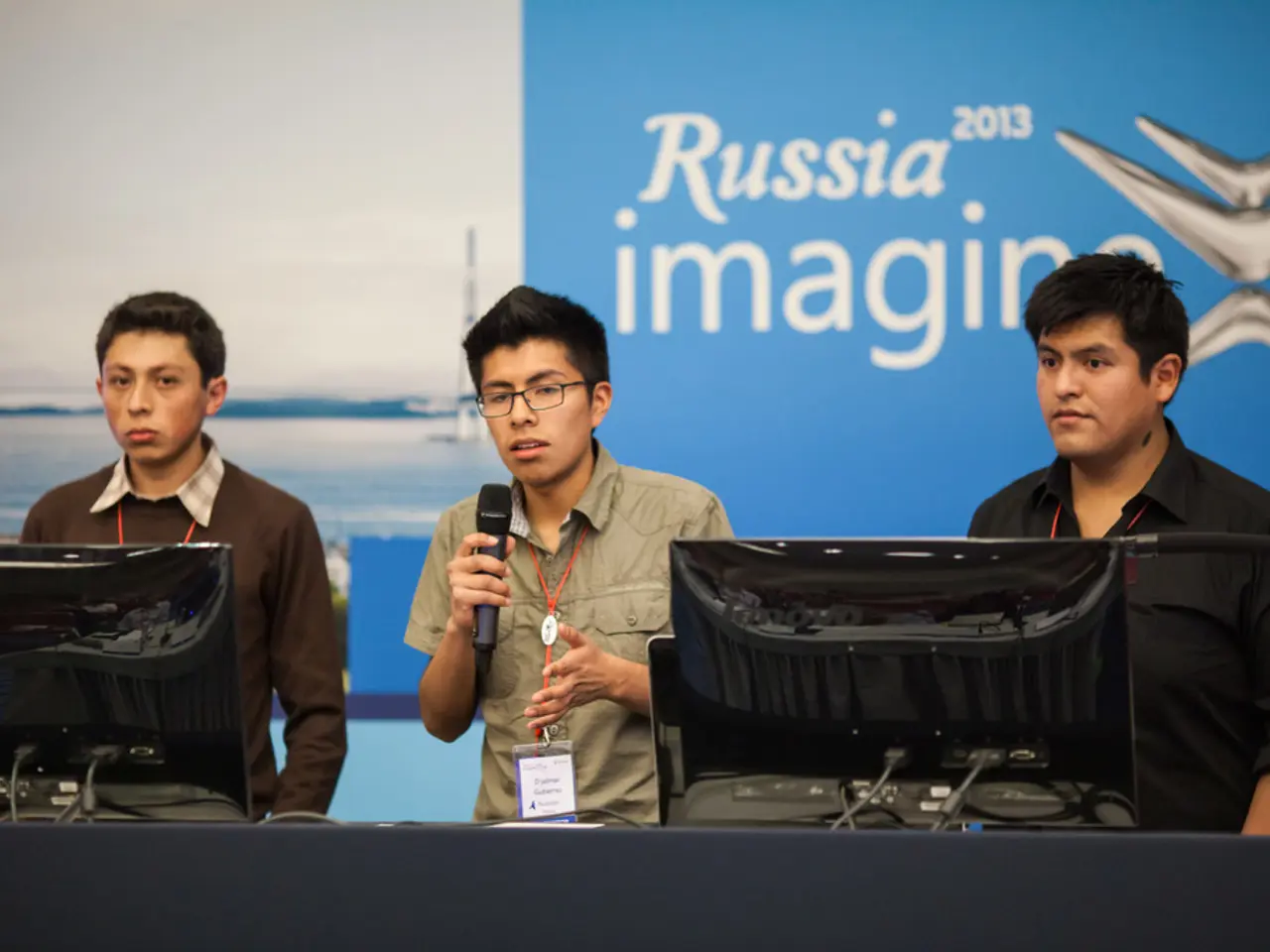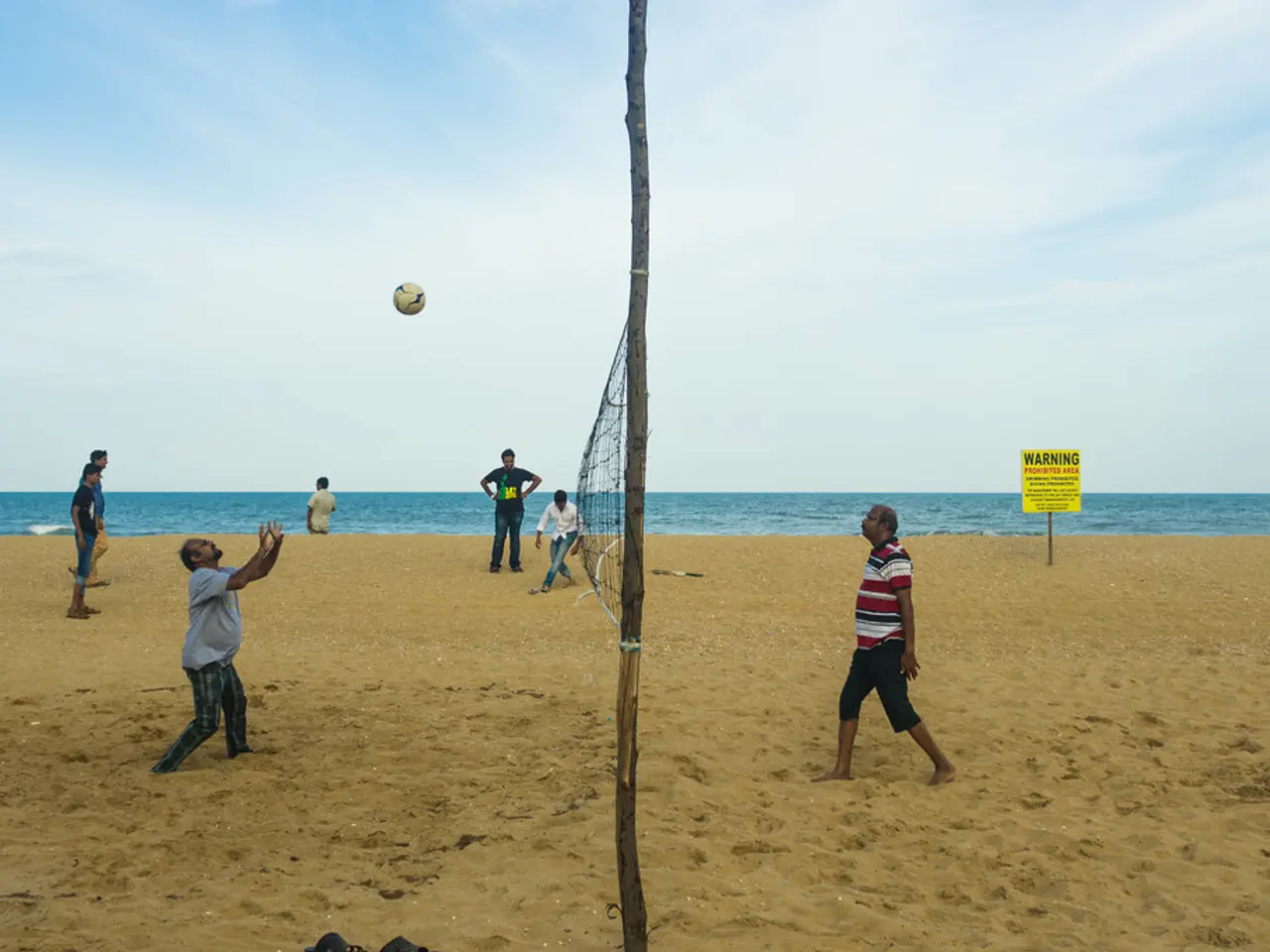U.S. diplomat engages with families of captured Israelis in Tel Aviv city
In the ongoing conflict between Israel and Palestinian armed groups, the plight of 49 hostages remains a pressing concern. These individuals, a mix of civilians and security personnel, have been held captive in Gaza since October 2023.
On August 5, 2025, Israeli Defense Forces (IDF) commander, Lieutenant General Eyal Zamir, emphasised the importance of their release, stating that without it, combat would continue unabated. The hostage-holding groups, including Hamas and Islamic Jihad, have been using these captives as leverage for political gains, refusing to free them without concessions such as a cease-fire and Israeli withdrawal from Gaza.
Israeli authorities have been cautious in their military operations, avoiding areas where hostages are believed to be held, to preserve chances for their safe release. However, tragic incidents have occurred, such as the strike on a US-backed aid station in Gaza that claimed five lives.
The United Nations Security Council has recognised the urgency of the situation but faces challenges due to Hamas's insistence on linking hostage release to broader conflict negotiations. At a recent session, Israeli officials appealed for the hostages’ immediate and unconditional release, highlighting reports of abuse, including starvation and torture.
International concern over the humanitarian situation in Gaza continues to grow. The UN human rights office reported that at least 1,373 Palestinians seeking aid in Gaza were killed since May 27, with most deaths near Gaza Health Facility sites and at the hands of the Israeli military. Reports of malnutrition among civilians, such as Mariam Dawwas, a resident of a displacement camp in Gaza City, further underscore the gravity of the situation.
David's family has accused Hamas of deliberately starving their son as part of a propaganda campaign. This allegation is one of many that Israel and its allies have made against Hamas, condemning the hostage-taking as war crimes.
In response to the crisis, diplomatic efforts have been intensified. Jared Witkoff, a prominent figure, has pledged to work with US President Donald Trump to return the remaining hostages after a meeting with the Hostages and Missing Families Forum in Tel Aviv. Meanwhile, the US, along with Egypt and Qatar, has been mediating ceasefire talks between Hamas and Israel, but these negotiations have so far proven unsuccessful.
The situation in Gaza remains critical, with no immediate resolution in sight. The international community continues to urge diplomatic and humanitarian solutions to secure the freedom of the hostages and address the broader conflict.
Sources: - Human Rights Watch, Aug 6, 2025 [1] - KFOXTV reporting Aug 6, 2025 [2] - Official statements at UN Security Council, Aug 5, 6, 2025 [3][4][5]
- The ongoing conflict between Israel and Palestinian armed groups, such as Hamas and Islamic Jihad, has led to a critical situation in Gaza, with the plight of 49 hostages, a mix of civilians and security personnel, remaining a pressing concern.
- These hostage-holding groups are using these captives as leverage for political gains, refusing to free them without concessions like a cease-fire and Israeli withdrawal from Gaza, which fuels the war-and-conflicts and general-news cycle.
- In this context, the health and human rights of the hostages have become a focus of concern, with reports of abuse, including starvation and torture, further highlighting the urgency of the situation.
- The international community, including the United Nations, diplomats like Jared Witkoff, and countries like the US, Egypt, and Qatar, are actively involved in diplomatic efforts to secure the immediate and unconditional release of the hostages and bring about an end to the conflict in a manner that respects human rights and promotes global peace, crime-and-justice, and political stability.







